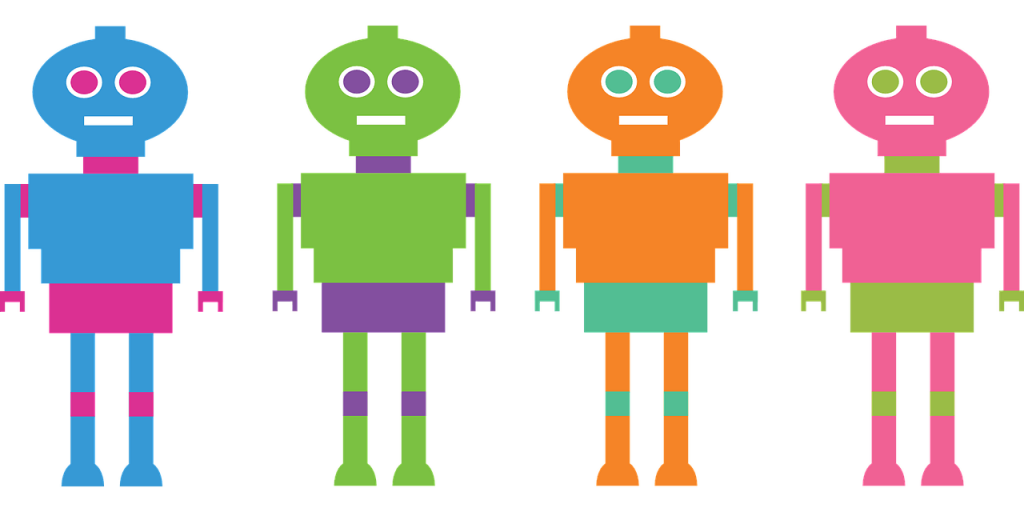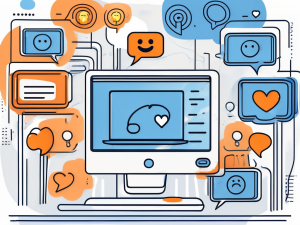Typically, major technological advancements generate a sense of excitement. However, they also have the ability to create controversy. Often there is an underlying concern that rapid innovation will eventually have a negative impact on our society due to our growing reliance on artificial intelligence. The emergence of automated live chat agents is no exception.
In the coming years, many Americans are concerned that chatbots will claim their jobs in the retail, telemarketing and customer service industries. On the other hand, big business is thrilled with the prospect of cutting down on overhead costs and increasing employee efficiency. So, are automated live chat agents (a.k.a. chatbots) going to take your job? Or aren’t they? The answer is a little more complicated than you might think.
How Much Can Chatbots Actually Do?
Chatbots are more realistic and more versatile than ever before. Since the inception of the first ‘bot in 1966, artificial intelligence has made leaps and bounds. We are now entering an age where it is going to be difficult for consumers to tell the difference between speaking with a real person and speaking with a chatbot.
Modern automated live chat agents have the ability to schedule appointments, take reservations, answer FAQs, perform financial transactions and provide contact information. Even more astounding is that ‘bots are now programmed to “learn” or store information from previous interactions. So, they are becoming more intelligent with each conversation they have.
Automated Live Chat Agents Are Going To Take Jobs
A recent report by the McKinsey Global Institute concluded that nearly two-thirds of all jobs could have a significant chunk of their activities automated by 2030. Bernard Louvat, General Manager of customer engagement firm, Nuance, theorizes that chatbots will replace most call center employees within the next 10 years. “Chatbots are certainly eliminating jobs – we need fewer and fewer human agents each year. The ones that are left will be highly skilled super-agents looking after the most complicated cases,” says Louvat.
Big Business Is Loving It
For big business, the cost-savings are too significant to pass up. A new study released by Juniper Research estimates that chatbots will save businesses more than $8 billion a year by 2022. How? ‘Bots have the ability to boost team productivity by providing timely, accurate answers to common inquiries.
Ordinarily, human workers only provide service to one customer at a time. In contrast, chatbots can field an unlimited amount of conversations at once. This is allowing live workers to focus on more complicated issues. Staff members also now have more freedom to concentrate on developing new ideas and completing important projects. So, it’s easy to see how ‘bots are saving on operational costs, manpower and time.
More Money, Less Problems
The biggest draw for businesses is that they can increase their revenue without having to increase their staff. Major brands like 1-800-Flowers, Sephora and Nike have all experienced an increase in sales since they implemented automated live chat agents. The reason? Chatbots eliminate wait times and streamline the buying process. As a result, customers are more inclined to make a purchase.
It’s also important to point out that corporations aren’t just making more money. They’re saving money, too. With chatbots, businesses can easily accommodate a broadening customer base without the expense of onboarding new staff. If anything, artificial intelligence is allowing companies to cut down on the number of customer service representatives on the payroll.
Customers Like How Convenient Chatbots Are
Consumers are constantly on-the-go. They expect to have access to their favorite brands from anywhere at any time. As a result, companies like LiveHelpNow have developed chatbots that are capable of multi-platform communication. To customers’ delight, software advancements like these have made it possible for brands to field inquiries through more than just website chat windows. Automated live chat agents can now offer assistance via email, SMS/text message and social media messaging.
No matter what medium customers are utilizing to communicate, they all have one thing common. None of them like to wait. According to a 2018 study conducted by the consumer engagement firm, Usabilla, 54 percent of users would choose a chatbot over a human customer service representative if it saved them 10 minutes. To most, nothing is worse than hearing the monotone words, “All of our service representatives are currently busy…”.
Being “Closed” Is Becoming Extinct
We are entering an era where there is no such thing as downtime or “after business hours.” 51 percent of consumers say a business needs to be available 24/7. Fortunately, automated live chat agents don’t need to take breaks, go on vacation or celebrate holidays. Part of a chatbot’s charm is that it can engage with customers 24/7/365, all while providing consistent, accurate service. It’s just one more reason that chatbots are falling into favor with businesses and consumers alike.
Automated Live Chat Agents Might Take Jobs, But Not Without Creating New Ones
In theory, a majority of online support professionals will be replaced by ‘bots. However, that doesn’t mean that humans will be completely eliminated from the consumer support industry. Instead, they will begin to contribute to the field in new ways.
Think about it. Technology has yet to reach a point where it is fool-proof. Servers crash and viruses attack software. And, at the end of the day, computers still lack the capacity to solve the most complex customer service issues.
In the event that artificial intelligence fails, safeguards must be put in place. ‘Bot programs will need to be updated. Platforms will need to be quality tested for bugs and errors. So, yes chatbots will absorb low-skill jobs. But, they will also create new ones.
There Will Be More Supervisory Positions
Automated live chat agents will catalyze the creation of more challenging positions. For instance, supervisory roles will become more prevalent. There will be times when chatbots run into roadblocks. And, most problems will arise when an issue has never been encountered by the system before.
Obviously, if a ‘bot has no prior knowledge on a subject, it will be incapable of independently providing an applicable response. In cases like these, customers’ inquiries will have to be assigned to living, breathing operators. This is a decision that will be made by human management.
Clearly, artificial intelligence is still no match for human judgment. David Lavenda, co-founder of software integration company harmon.ie, points out that automated systems are not yet advanced enough to set objectives. “Being able to deal with the nuances of problems is still something that humans obviously excel at. So, finding the things that are worth teaching to the AI…that’ll still always be a job in the hands of humans,” says Lavenda.
Therefore, chatbots won’t replace human workers. They will instead act as a supplement. New jobs will be generated as businesses’ staffing needs gravitate towards positions in digital labor management, knowledge base management, script writing, and the commissioning of new virtual assistants.
The Evolution Of Work
The truth is…it’s not that there won’t be work. It’s that the type of work that people do will change. Chatbots have a long way to go if they are going to be responsible for resolving customers’ concerns at the highest level. ‘Bots are still having trouble providing sufficient responses to multi-layered, in-depth questions. As a result, businesses are beginning to realize that they need skilled employees to make automated live chat agents more life-like.
Companies all over the country are beginning to invest in programmers and developers to improve their chatbots’ capabilities. Consequently, many existing workers will have to adapt in order to maintain their relevancy. Rachel Russell, the executive director of corporate strategy for the talent solutions provider, Allegis Group, points out that, “as AI takes on more of the work we do, continuous learning and a willingness to develop new skills will likely be a requirement for nearly every worker to maintain their job.”
On the upside, entirely new careers are emerging as well. Roles are being built as a response to artificial intelligence’s growing popularity. There is now a growing need for AI trainers and data scientists. There is also a rising demand for positions concentrated in psychological modeling and machine linguistics.
Customers Still Prefer Real Interactions
There’s a reason why companies are putting so much effort into creating new positions. Big business’s goal is to keep their customers happy. Though chatbots are already well represented in the marketplace, consumers still prefer human interactions. 65% of consumers still prefer a human agent on the other end of the conversation because ‘bots lack advanced intelligence. Many users have cited the absence of detail and genuine understanding as a paint point.
Computer Generated Solutions (CGS), a business application, learning, and outsourcing company, recommends using automated live chat agents to manage quick service requests. They suggest using human agents to take on more critical matters until the appropriate technological advancements are made. “A human can answer a question on the fly, empathize with a frustrated customer and get to the issue pretty quickly,” says CGS Vice President, Michael Mills.
Chatbots Could End Up Being A Win For Everyone
The general consensus is that chatbots are the future of customer service and online retail. However, if they really are the future, they’re going to need a lot of help getting there. Thus, the job market will expand in response to advancing technology. This will result in more jobs not less. In fact, Oracle CEO, Mark Hurd, predicts that “artificial intelligence will change the global economy and tech industry so fast in the coming years that 60% of the IT jobs that we’ll have in 2025 haven’t even been invented yet.”
The uncertainty that comes with a drastic change in the job market is bound to cause uneasiness among customer service professionals. Fortunately, all signs point to chatbots being an eventual victory for businesses, the workforce, and consumers.
For more business tips and customer service advice like LiveHelpNow on Facebook or follow our business page on LinkedIn.









